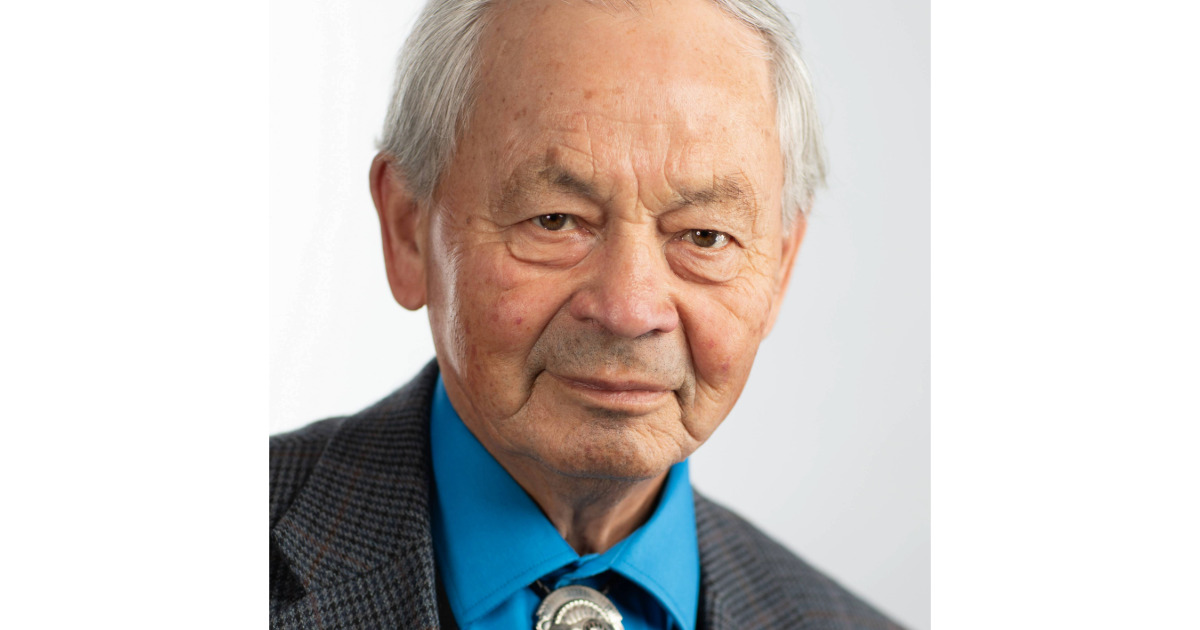
Elder-in-residence Norman Meade
Elder Norman Meade hosts Sharing Circles at the Indigenous Student Centre
Join us Tuesdays at 1 p.m.
“Sharing circles are a special place to come and share what’s on your mind and what’s on your heart,” says Elder-in-residence Norman Meade, who leads in-person sharing circles hosted by the Indigenous Student Centre (ISC).
Sharing circles are safe spaces for students to share their experiences and receive support, teachings and care from an ISC Elder or Knowledge Keeper-in-Residence. The sharing circles take place every Tuesday at 1 p.m. in the Circle Room at Migizii Agamik – Bald Eagle Lodge. All UM students are welcome to participate.
Why attend?
“We learn from one another by sharing with each other,” says Elder Meade. “For every strength, there is a weakness – and weakness is strength. This is an important teaching.” Sharing circles are a place to:
- learn teachings and pass on teachings.
- receive support and guidance from Elders and your peers in a safe space.
- build community through sharing stories and exploring values, which helps participants feel physically, psychologically and emotionally safe and creates a foundation for courageous acts of sharing.
“The reason you should come to a sharing circle is to come and share what you might be dealing with or going through right now – that’s why I like to go to a sharing circle,” says Elder Meade. “If I don’t go to a sharing circle often enough, I miss being there because every one of us—doesn’t matter who we are—we have to share what’s on our mind, what’s on our spirit today and we’re all in a different place.”
What to expect
When you attend a sharing circle, know that what you share in the sharing circle, stays in the circle.
“Students are often a bit shy about sharing what they might be struggling with and if there’s a certain number of people in the circle some people won’t share their personal things”, says Meade. “For myself, when I’m in a sharing circle or leading a sharing circle, I let the participants know what you bring into the circle stays in the circle because that’s important. For me, personally, when I’m sharing in a sharing circle, I will share what might be on my heart or my mind or my spirit at that very time.”
As part of a sharing circle, you will:
- Listen–sharing circles are a listening exercise, as well as a sharing exercise where we learn how to listen.
- Share – you can share when you have the talking stick or stone. That’s your time to speak and for others to listen.
- Feel – it can be an emotional experience because you’re able to share about yourself and things you may be dealing with.
Elders are careful not to let the sharing circle become a gossip session or to have misinformation spread – because that’s not what sharing circles are about.
“For myself, if I’m just introducing myself in a sharing circle and have nothing that’s heavy on my heart then I will share personal things of where I’m at and what I’m doing and how I’m feeling,” says Meade. “I’ll share where some of my strengths and weaknesses come from, the weaknesses that we encounter in life and how does strength offset weaknesses; it’s good to talk about ‘my weakness is this’ because strength helps get us through the weakness.”
Students should not feel intimidated at a sharing circle. They are a welcoming place, where respect is the most important thing, especially when it comes to the Elders.
“Most of the students I know, they have respect for us as Elders – they all show their respect in different ways. Some of the first-year students and second year students may have never sat in a circle where an Elder is present or had a chance to sit with an Elder,” says Elder Meade. “So, they might have a little different way of relating to an Elder but ones that have been there before or been in a sharing circle before, they would know how to respect an Elder and that’s really important to see, for everyone.”
Find upcoming dates for the Student Sharing Circle with Elder Norman Meade on the Indigenous Events Calendar.






